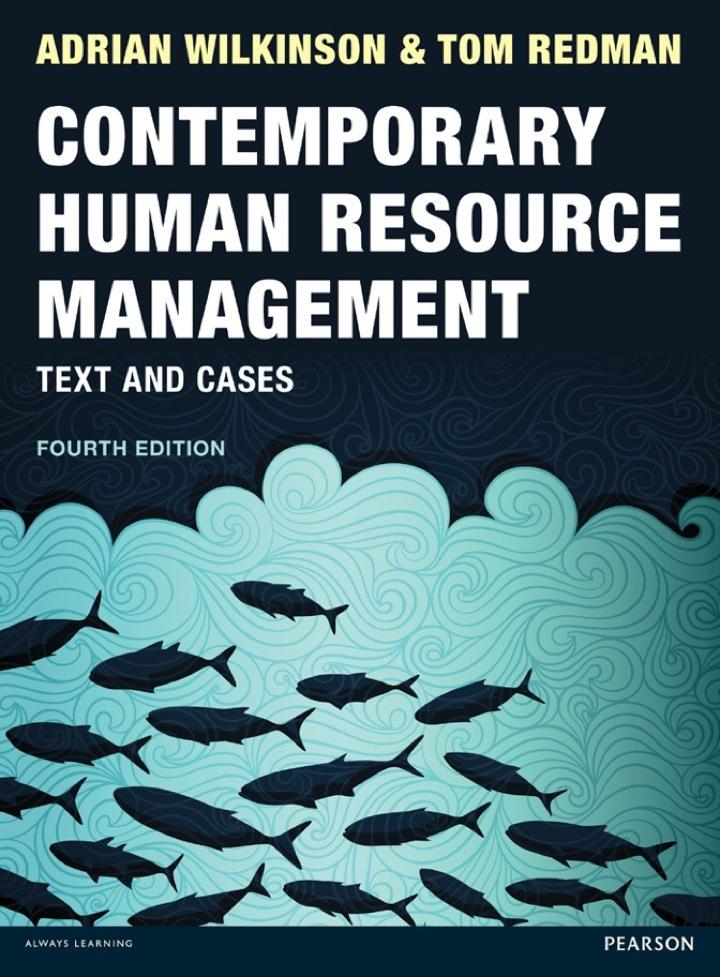PharMerger is a pharmaceutical company with significant global presence in six continents and premises in 45 countries.
Question:
PharMerger is a pharmaceutical company with significant global presence in six continents and premises in 45 countries. The UK has two research and development sites, one of which is the subject of this case study, and 14 commercial and production locations. The history of this site can be framed in terms of three distinct eras and it is these which have shaped the culture of the current organization to a great extent. Founded in the mid-1970s, the original organization was taken over by a foreign company at the end of the 1980s and then merged with a UK-based global giant in the mid-1990s.
However, there is not a clear starting point to the organization’s adoption of family-friendly working; the most senior HR respondent described the site’s family-friendly emphasis as having ‘grown progressively, it’s not as if it
“came in” at any point’. Employees have had flexi-time working arrangements since the early 1980s but specific and explicit family-friendly employment policies were not introduced until shortly after the merger with the pharmaceutical giant. These policies are perceived by employees to be indicative of the larger company’s desire to control and systematize working patterns. Although employees were in agreement that PharMerger is more family-friendly than the original company, this was widely attributed to the passage of time, rather than to divergent approaches of the two companies. Any company aspiring to attract and retain the best employees (as PharMerger certainly does) now has to provide an environment which is more family-friendly than in previous decades.
Interviews with HR professionals revealed that, to some extent, competitors in the pharmaceutical industry whose employment packages include a high level of family-friendly provision, provide the impetus for ongoing improvement of PharMerger’s policies. (This is also seen in other industries; McKee et al. (2000) found that oil and gas industry employers compete with each other when setting policies through a process informed by knowledge gathered through both informal and formal networking within the sector.) HR professionals were representative of the corporate perspective in their commonly held view that provision was generous, went beyond statutory requirements and employees should be satisfied with it.
Managers tended to concur, especially those with responsibility for several members of staff, rather than just one or two. Other research has examined the role managers play as gatekeepers to policy implementation
(Bond et al., 2002; Dex and Scheibl, 2002; Yeandle et al., 2003) and this study confirmed previous findings about the decisive nature of their discretion. Respondents frequently described how it was ‘down to the managers’
and how they used policies and stated that the company itself had reached a limit in terms of policies that could be put in place. Managers described feeling constrained to a certain extent by policies, typically in the sense that policy provision was too generous in practice; if policies were fully implemented this threatened to affect their ability to deliver against somewhat inflexible and high targets.
Many employees were parents who needed their working patterns to fit around school hours; flexible working policies enabled them to leave the premises early and recommence work in the early evening. These opportunities, used almost exclusively by women, carried no penalty for administrative staff but it was typical for more senior staff to have to work in an officially part-time capacity if they wanted this level of flexibility. They also had to be willing to allow work to intrude their home life outside their contracted hours (e.g. they were expected to access email remotely and be available on the telephone). Individual employees also had demanding and inflexible targets to reach and these, in some cases, prevented them from taking advantage of policies. One scientist who occasionally needed to attend hospital appointments with a disabled child and thus required additional flexibility, reported that the pressure to reach her targets was a powerful disincentive to using policies. Her preferred option was to use annual leave instead. The pressure of targets strongly influenced her eventual decision to leave the company. This employee challenged key facets of the PharMerger culture, such as the ‘ideal worker type’, described elsewhere in the literature and evident in both organizations.......
Question
1 What cultural changes would be necessary to make the work–life balance policies in the case study organizations truly deliver all they promise?
2 In what ways do the work–life balance cultures of the two case study organizations seem at odds with their policies?
3 How does the concept of the ‘ideal worker type’ help to explain workplace work–life balance cultures?
4 Discuss the implications of work–life balance policies and cultures for women’s and men’s careers and for the redistribution of household and family labour?
Step by Step Answer:

Contemporary Human Resource Management Text And Cases
ISBN: 9780273757825
4th Edition
Authors: Tom Redman, Adrian Wilkinson





